Note to coffee lovers: is it possible to pour coffee grounds into the sink and toilet?
Although plumbers do not recommend pouring coffee grounds into the sink, lovers of the invigorating drink regularly get rid of them this way. The result is disastrous - blockages appear in the drainage system every now and then. However, if you throw coffee sediment into the sink once, nothing bad will happen.
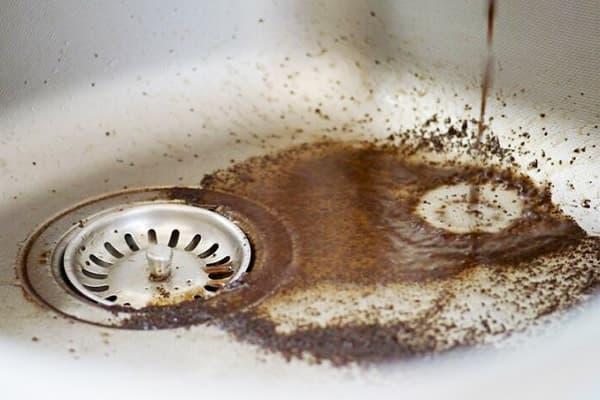
Causes and consequences
If grounds get into the drain, it can lead to two problems:
- Insoluble particles accumulate in the siphon (also called the elbow). When in contact with other waste that is washed down the sink - food debris, and especially droplets of fat - they form a dense, viscous and viscous substance. Over time, it becomes more and more, and at one not very wonderful moment it completely turns into a kind of plug, interfering with the outflow of water. After this, the siphon has to be disassembled and cleaned.
- Spilled coffee brew, which for some reason did not stay in the siphon, settles on the walls of the pipes. Next, the process already described occurs - fat and other kitchen waste help the particles to gain a foothold in their new “habitat”. Each subsequent portion of grounds contributes to the thickening of this layer and, accordingly, the narrowing of the internal lumen of the pipe. Sooner or later it will become critically small and will not allow water to go down the drain.It is worth noting that the speed, and indeed the probability of the growth of a sedimentary layer, depends on the material from which the pipe is made - cast iron is rougher than plastic, so the process goes faster.
If you can wash the siphon yourself (it can be unscrewed and put back in place quite easily), then you will have to entrust the cleaning of the pipe to a specialist. Moreover, sometimes the growths on the walls turn out to be so hard that there is no way to get rid of them. In this case, there is only one way to restore the functionality of the drainage system - by replacing the pipe.
Safe disposal of coffee grounds
The easiest option is to pour the coffee brew into the toilet. Firstly, the diameter of the pipe connected to this plumbing fixture is 110mm (the drain pipe that comes from the kitchen sink is only 50mm wide). And secondly, the distance from the drain hole to the riser is extremely small - the grounds do not have time to settle on the walls. However, despite these advantages, the grounds should not be left in the toilet for a long time - you need to flush the water immediately.
There are alternative ways to use the residue left after brewing coffee.
Body Scrub
Coffee grounds are a great helper in the fight against cellulite. If you use a scrub made from it twice a month, you will soon notice that the skin is fresher, tightened, more elastic, and unevenness begins to smooth out. With more frequent use, the effect appears faster.
Coarse and medium grind coffee is suitable for scrub. After brewing, the sediment remaining at the bottom of the Turk is placed on a paper towel and dried.To prevent solid particles from scratching the skin, but to massage it, you need to mix coffee “dust” with a component that provides gliding, for example, honey or vegetable oil (coconut, olive). You can also add sugar - it enhances the scrubbing properties. Prepare this mixture immediately before use.
Component for acidic soil mixtures
Dried grounds can be added to the soil when planting indoor and even outdoor plants that need acidic soil. In addition to changing the pH, coffee loosens the soil and promotes its breathability.
Odor absorber
Using dried coffee brew you can easily get rid of unpleasant odors:
- in a separate room (for example, in the kitchen or bathroom);
- in a refrigerator;
- in closed shoes.
To do this, it is enough to fill any container (or several containers) of suitable size and appearance with grounds, and then place them in the right places. The coffee will absorb the “foreign” smell and at the same time emit its own pleasant aroma.
You can put the grounds in your shoes by wrapping them in a piece of thin cotton material or a paper napkin.
Fabric dye
If you need to dye a white canvas beige or light brown, coffee grounds will come in handy. To do this, it will have to be brewed again. The result will depend on the concentration of the solution - the more saturated it is, the darker the tone of the fabric.
Ingredient for homemade soap
When making bath soap (no matter from scratch or from a ready-made base), you can add dry coffee grounds to the soap mass. Every time you bathe, small pieces of grains will scrub your skin and provide a micro-massage. It is important not to overdo it - if the soap contains a lot of additives, it becomes too fragile.
From all of the above, we can conclude that you should not pour coffee grounds into the sink because of the risk of blockages in the sewer pipes. A toilet is much more suitable for this purpose, but you will have to waste a lot of water to flush away the coffee. Those who do not want to risk the functionality of the drainage system in their apartment should filter the sediment from the Turk through a fine strainer - what remains in it can be thrown into a garbage bag along with other food waste or used for other purposes.
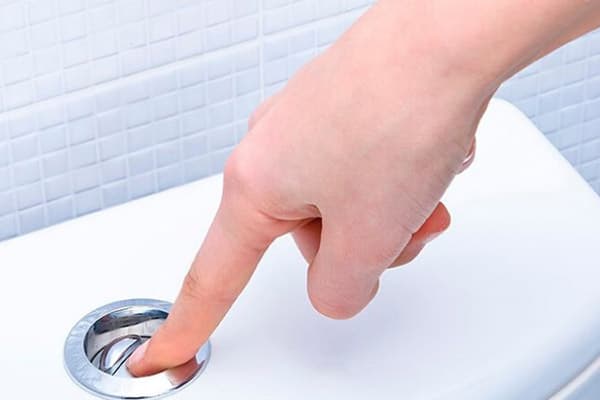
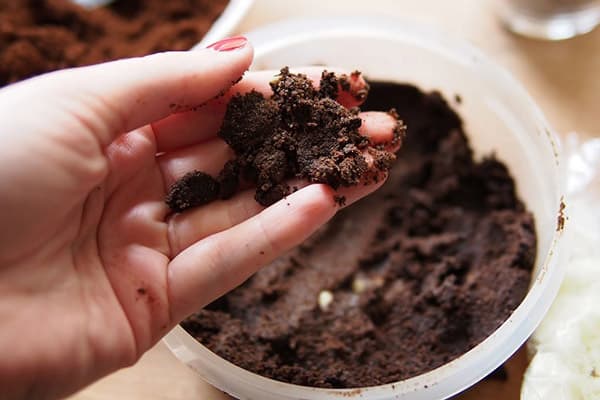
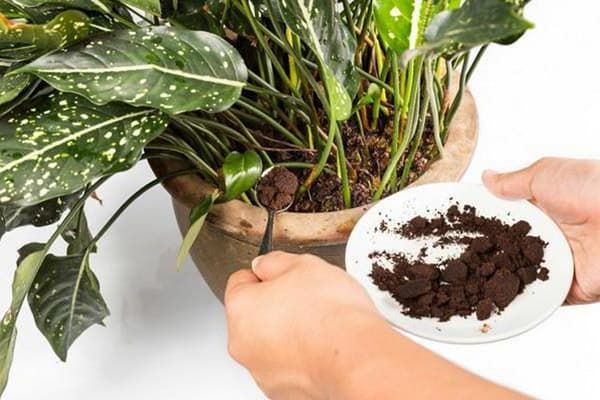
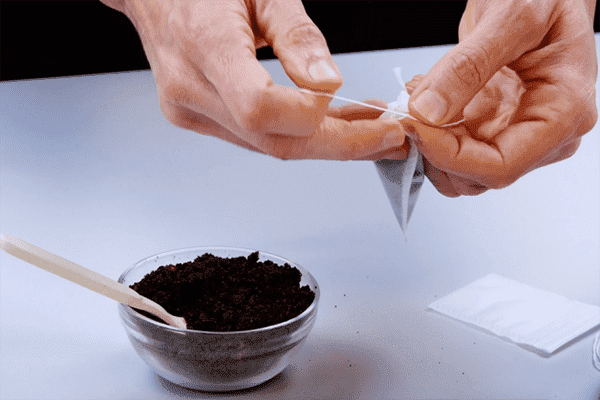
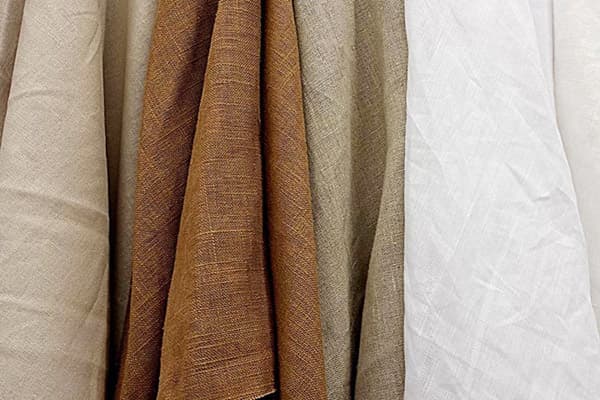
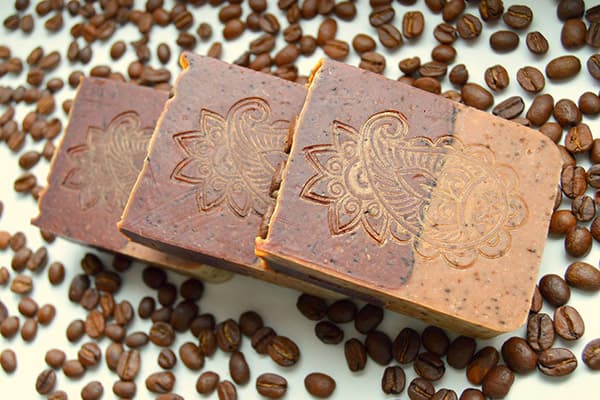
Coffee poured down the drain acts as a scrub, unlike tea...
Coffee in the sewer pipes acts as a scrub... so feel free to pour it out....
And I feed the plants with grounds! It's good that I rarely drink coffee! Otherwise I’d have coffee grounds instead of soil! :-)
Where should I wash off the body scrub, also down the drain?
Only urine and feces should go into the sewer system.
This is not coffee brewing, but coffee grounds! Tea brewing!
The article is nonsense.
I work in a workshop that repairs coffee machines... we just dispose of coffee grounds in the sewer, kilograms a day... for several years the flight has been normal.
Wonderful article! Everything is absolutely true! This is exactly the kind of black, vile rubbish that the remains of spilled coffee turn into!! I watched it personally.. I don’t want it anymore!!
For 5 years I have been dumping coffee grounds into the kitchen sink, everything is fine. And even if something gets clogged, I’ll clean it with a cable and no problems. This moronic article has been copied from each other for about 2 years now.
I've been pouring it there for 20 years, no problems!
Now I fertilize the plants with coffee grounds. I live well in a private house and have a garden with a vegetable garden. So there is somewhere to recycle.